
Westminster Confession
Reformed Forum
Reformed Theological Resources
- Summary of Christian Doctrine: The Word of God and the Sacraments in General

This week on Theology Simply Profound, Rob and Bob discuss Louis Berkhof’s little book, Summary of Christian Doctrine. We continue our discussion of chapter XXV, “The Word of God and the Sacraments in General.” In this episode, we mostly talk about the nature of a sacrament as a means of grace.
Participants: Rob McKenzie, Robert Tarullo
10 July 2024, 1:30 pm - 1 minute 52 secondsConfession Chapter 33: Of the Last Judgment
1. God hath appointed a day, wherein he will judge the world, in righteousness, by Jesus Christ, to whom all power and judgment is given of the Father. In which day, not only the apostate angels shall be judged, but likewise all persons that have lived upon earth shall appear before the tribunal of Christ, to give an account of their thoughts, words, and deeds; and to receive according to what they have done in the body, whether good or evil. 2. The end of God’s appointing this day is for the manifestation of the glory of his mercy, in the eternal salvation of the elect; and of his justice, in the damnation of the reprobate, who are wicked and disobedient. For then shall the righteous go into everlasting life, and receive that fullness of joy and refreshing, which shall come from the presence of the Lord; but the wicked who know not God, and obey not the gospel of Jesus Christ, shall be cast into eternal torments, and be punished with everlasting destruction from the presence of the Lord, and from the glory of his power. 3. As Christ would have us to be certainly persuaded that there shall be a day of judgment, both to deter all men from sin; and for the greater consolation of the godly in their adversity: so will he have that day unknown to men, that they may shake off all carnal security, and be always watchful, because they know not at what hour the Lord will come; and may be ever prepared to say, Come Lord Jesus, come quickly, Amen.
27 August 2008, 7:00 am - 1 minute 30 secondsConfession Chapter 32: Of the State of Men After Death, and of the Resurrection of the Dead
1. The bodies of men, after death, return to dust, and see corruption: but their souls, which neither die nor sleep, having an immortal subsistence, immediately return to God who gave them: the souls of the righteous, being then made perfect in holiness, are received into the highest heavens, where they behold the face of God, in light and glory, waiting for the full redemption of their bodies. And the souls of the wicked are cast into hell, where they remain in torments and utter darkness, reserved to the judgment of the great day. Besides these two places, for souls separated from their bodies, the Scripture acknowledgeth none. 2. At the last day, such as are found alive shall not die, but be changed: and all the dead shall be raised up, with the selfsame bodies, and none other (although with different qualities), which shall be united again to their souls forever. 3. The bodies of the unjust shall, by the power of Christ, be raised to dishonor: the bodies of the just, by his Spirit, unto honor; and be made conformable to his own glorious body.
20 August 2008, 7:00 am - 1 minute 57 secondsConfession Chapter 31: Of Synods and Councils
1. For the better government, and further edification of the church, there ought to be such assemblies as are commonly called synods or councils: and it belongeth to the overseers and other rulers of the particular churches, by virtue of their office, and the power which Christ hath given them for edification and not for destruction, to appoint such assemblies; and to convene together in them, as often as they shall judge it expedient for the good of the church. 2. It belongeth to synods and councils, ministerially to determine controversies of faith, and cases of conscience; to set down rules and directions for the better ordering of the public worship of God, and government of his church; to receive complaints in cases of maladministration, and authoritatively to determine the same: which decrees and determinations, if consonant to the Word of God, are to be received with reverence and submission; not only for their agreement with the Word, but also for the power whereby they are made, as being an ordinance of God appointed thereunto in his Word. 3. All synods or councils, since the Apostles’ times, whether general or particular, may err; and many have erred. Therefore they are not to be made the rule of faith, or practice; but to be used as a help in both. 4. Synods and councils are to handle, or conclude nothing, but that which is ecclesiastical: and are not to intermeddle with civil affairs which concern the commonwealth, unless by way of humble petition in cases extraordinary; or, by way of advice, for satisfaction of conscience, if they be thereunto required by the civil magistrate.
13 August 2008, 7:00 am - 1 minute 33 secondsConfession Chapter 30: Of Church Censures
1. The Lord Jesus, as King and Head of his church, hath therein appointed a government, in the hand of church officers, distinct from the civil magistrate. 2. To these officers the keys of the kingdom of heaven are committed; by virtue whereof, they have power, respectively, to retain, and remit sins; to shut that kingdom against the impenitent, both by the Word, and censures; and to open it unto penitent sinners, by the ministry of the gospel; and by absolution from censures, as occasion shall require. 3. Church censures are necessary, for the reclaiming and gaining of offending brethren, for deterring of others from the like offenses, for purging out of that leaven which might infect the whole lump, for vindicating the honor of Christ, and the holy profession of the gospel, and for preventing the wrath of God, which might justly fall upon the church, if they should suffer his covenant, and the seals thereof, to be profaned by notorious and obstinate offenders. 4. For the better attaining of these ends, the officers of the church are to proceed by admonition; suspension from the sacrament of the Lord’s Supper for a season; and by excommunication from the church; according to the nature of the crime, and demerit of the person.
6 August 2008, 7:00 am - 4 minutes 16 secondsConfession Chapter 29: Of the Lord’s Supper
1. Our Lord Jesus, in the night wherein he was betrayed, instituted the sacrament of his body and blood, called the Lord’s Supper, to be observed in his church, unto the end of the world, for the perpetual remembrance of the sacrifice of himself in his death; the sealing all benefits thereof unto true believers, their spiritual nourishment and growth in him, their further engagement in and to all duties which they owe unto him; and, to be a bond and pledge of their communion with him, and with each other, as members of his mystical body. 2. In this sacrament, Christ is not offered up to his Father; nor any real sacrifice made at all, for remission of sins of the quick or dead; but only a commemoration of that one offering up of himself, by himself, upon the cross, once for all: and a spiritual oblation of all possible praise unto God, for the same: so that the popish sacrifice of the mass (as they call it) is most abominably injurious to Christ’s one, only sacrifice, the alone propitiation for all the sins of his elect. 3. The Lord Jesus hath, in this ordinance, appointed his ministers to declare his word of institution to the people; to pray, and bless the elements of bread and wine, and thereby to set them apart from a common to an holy use; and to take and break the bread, to take the cup, and (they communicating also themselves) to give both to the communicants; but to none who are not then present in the congregation. 4. Private masses, or receiving this sacrament by a priest, or any other, alone; as likewise, the denial of the cup to the people, worshiping the elements, the lifting them up, or carrying them about, for adoration, and the reserving them for any pretended religious use; are all contrary to the nature of this sacrament, and to the institution of Christ. 5. The outward elements in this sacrament, duly set apart to the uses ordained by Christ, have such relation to him crucified, as that, truly, yet sacramentally only, they are sometimes called by the name of the things they represent, to wit, the body and blood of Christ; albeit, in substance and nature, they still remain truly and only bread and wine, as they were before. 6. That doctrine which maintains a change of the substance of bread and wine, into the substance of Christ’s body and blood (commonly called transubstantiation) by consecration of a priest, or by any other way, is repugnant, not to Scripture alone, but even to common sense, and reason; overthroweth the nature of the sacrament, and hath been, and is, the cause of manifold superstitions; yea, of gross idolatries. 7. Worthy receivers, outwardly partaking of the visible elements, in this sacrament, do then also, inwardly by faith, really and indeed, yet not carnally and corporally but spiritually, receive, and feed upon, Christ crucified, and all benefits of his death: the body and blood of Christ being then, not corporally or carnally, in, with, or under the bread and wine; yet, as really, but spiritually, present to the faith of believers in that ordinance, as the elements themselves are to their outward senses. 8. Although ignorant and wicked men receive the outward elements in this sacrament; yet, they receive not the thing signified thereby; but, by their unworthy coming thereunto, are guilty of the body and blood of the Lord, to their own damnation. Wherefore, all ignorant and ungodly persons, as they are unfit to enjoy communion with him, so are they unworthy of the Lord’s table; and cannot, without great sin against Christ, while they remain such, partake of these holy mysteries, or be admitted thereunto.
30 July 2008, 7:00 am - 2 minutes 9 secondsConfession Chapter 28: Of Baptism
1. Baptism is a sacrament of the new testament, ordained by Jesus Christ, not only for the solemn admission of the party baptized into the visible church; but also, to be unto him a sign and seal of the covenant of grace, of his ingrafting into Christ, of regeneration, of remission of sins, and of his giving up unto God, through Jesus Christ, to walk in newness of life. Which sacrament is, by Christ’s own appointment, to be continued in his church until the end of the world. 2. The outward element to be used in this sacrament is water, wherewith the party is to be baptized, in the name of the Father, and of the Son, and of the Holy Ghost, by a minister of the gospel, lawfully called thereunto. 3. Dipping of the person into the water is not necessary; but baptism is rightly administered by pouring, or sprinkling water upon the person. 4. Not only those that do actually profess faith in and obedience unto Christ, but also the infants of one, or both, believing parents, are to be baptized. 5. Although it be a great sin to contemn or neglect this ordinance, yet grace and salvation are not so inseparably annexed unto it, as that no person can be regenerated, or saved, without it; or, that all that are baptized are undoubtedly regenerated. 6. The efficacy of baptism is not tied to that moment of time wherein it is administered; yet, notwithstanding, by the right use of this ordinance, the grace promised is not only offered, but really exhibited, and conferred, by the Holy Ghost, to such (whether of age or infants) as that grace belongeth unto, according to the counsel of God’s own will, in his appointed time. 7. The sacrament of baptism is but once to be administered unto any person.
23 July 2008, 7:00 am - 1 minute 41 secondsConfession Chapter 27: Of the Sacraments
1. Sacraments are holy signs and seals of the covenant of grace, immediately instituted by God, to represent Christ, and his benefits; and to confirm our interest in him: as also, to put a visible difference between those that belong unto the church, and the rest of the world; and solemnly to engage them to the service of God in Christ, according to his Word. 2. There is, in every sacrament, a spiritual relation, or sacramental union, between the sign and the thing signified: whence it comes to pass, that the names and effects of the one are attributed to the other. 3. The grace which is exhibited in or by the sacraments rightly used, is not conferred by any power in them; neither doth the efficacy of a sacrament depend upon the piety or intention of him that doth administer it: but upon the work of the Spirit, and the word of institution, which contains, together with a precept authorizing the use thereof, a promise of benefit to worthy receivers. 4. There be only two sacraments ordained by Christ our Lord in the Gospel; that is to say, baptism, and the Supper of the Lord: neither of which may be dispensed by any, but by a minister of the Word lawfully ordained. 5. The sacraments of the old testament, in regard of the spiritual things thereby signified and exhibited, were, for substance, the same with those of the new.
16 July 2008, 7:00 am - 1 minute 29 secondsConfession Chapter 26: Of the Communion of the Saints
1. All saints, that are united to Jesus Christ their Head, by his Spirit, and by faith, have fellowship with him in his graces, sufferings, death, resurrection, and glory: and, being united to one another in love, they have communion in each other’s gifts and graces, and are obliged to the performance of such duties, public and private, as do conduce to their mutual good, both in the inward and outward man. 2. Saints by profession are bound to maintain an holy fellowship and communion in the worship of God, and in performing such other spiritual services as tend to their mutual edification; as also in relieving each other in outward things, according to their several abilities and necessities. Which communion, as God offereth opportunity, is to be extended unto all those who, in every place, call upon the name of the Lord Jesus. 3. This communion which the saints have with Christ, doth not make them in any wise partakers of the substance of his Godhead; or to be equal with Christ in any respect: either of which to affirm is impious and blasphemous. Nor doth their communion one with another, as saints, take away, or infringe the title or propriety which each man hath in his goods and possessions.
9 July 2008, 7:00 am - 1 minute 58 secondsConfession Chapter 25: Of the Church
1. The catholic or universal church, which is invisible, consists of the whole number of the elect, that have been, are, or shall be gathered into one, under Christ the Head thereof; and is the spouse, the body, the fullness of him that filleth all in all. 2. The visible church, which is also catholic or universal under the gospel (not confined to one nation, as before under the law), consists of all those throughout the world that profess the true religion; and of their children: and is the kingdom of the Lord Jesus Christ, the house and family of God, out of which there is no ordinary possibility of salvation. 3. Unto this catholic visible church Christ hath given the ministry, oracles, and ordinances of God, for the gathering and perfecting of the saints, in this life, to the end of the world: and doth, by his own presence and Spirit, according to his promise, make them effectual thereunto. 4. This catholic church hath been sometimes more, sometimes less visible. And particular churches, which are members thereof, are more or less pure, according as the doctrine of the gospel is taught and embraced, ordinances administered, and public worship performed more or less purely in them. 5. The purest churches under heaven are subject both to mixture and error; and some have so degenerated, as to become no churches of Christ, but synagogues of Satan. Nevertheless, there shall be always a church on earth, to worship God according to his will. 6. There is no other head of the church but the Lord Jesus Christ. Nor can the pope of Rome, in any sense, be head thereof.
2 July 2008, 7:00 am - 2 minutes 24 secondsConfession Chapter 24: Of Marriage and Divorce
1. Marriage is to be between one man and one woman: neither is it lawful for any man to have more than one wife, nor for any woman to have more than one husband, at the same time. 2. Marriage was ordained for the mutual help of husband and wife, for the increase of mankind with legitimate issue, and of the church with an holy seed; and for preventing of uncleanness. 3. It is lawful for all sorts of people to marry, who are able with judgment to give their consent. Yet it is the duty of Christians to marry only in the Lord. And therefore such as profess the true reformed religion should not marry with infidels, papists, or other idolaters: neither should such as are godly be unequally yoked, by marrying with such as are notoriously wicked in their life, or maintain damnable heresies. 4. Marriage ought not to be within the degrees of consanguinity or affinity forbidden by the Word. Nor can such incestuous marriages ever be made lawful by any law of man or consent of parties, so as those persons may live together as man and wife. 5. Adultery or fornication committed after a contract, being detected before marriage, giveth just occasion to the innocent party to dissolve that contract. In the case of adultery after marriage, it is lawful for the innocent party to sue out a divorce: and, after the divorce, to marry another, as if the offending party were dead. 6. Although the corruption of man be such as is apt to study arguments unduly to put asunder those whom God hath joined together in marriage: yet, nothing but adultery, or such willful desertion as can no way be remedied by the church, or civil magistrate, is cause sufficient of dissolving the bond of marriage: wherein, a public and orderly course of proceeding is to be observed; and the persons concerned in it not left to their own wills, and discretion, in their own case.
25 June 2008, 7:00 am - More Episodes? Get the App
Your feedback is valuable to us. Should you encounter any bugs, glitches, lack of functionality or other problems, please email us on [email protected] or join Moon.FM Telegram Group where you can talk directly to the dev team who are happy to answer any queries.
 Larger Catechism
Larger Catechism
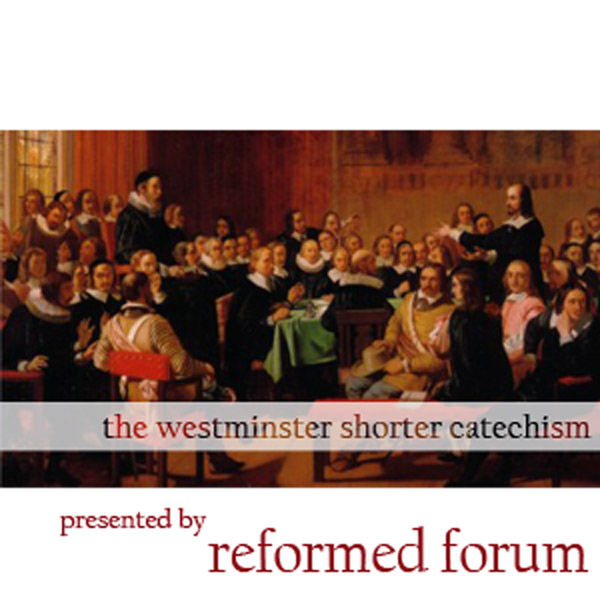 Shorter Catechism
Shorter Catechism
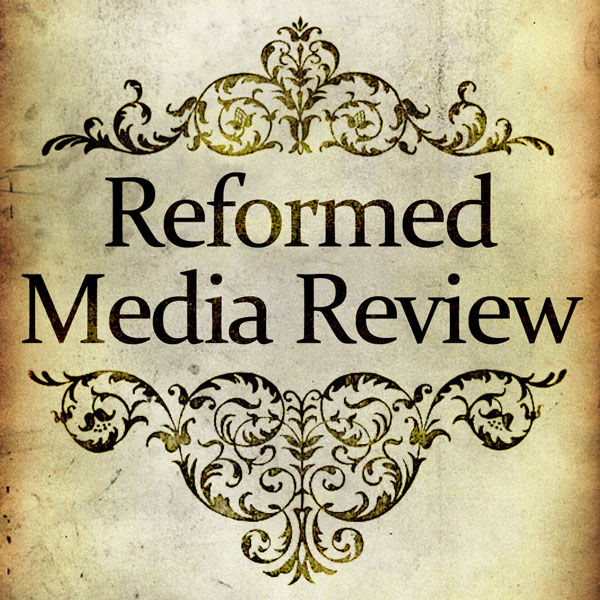 Reformed Media Review
Reformed Media Review
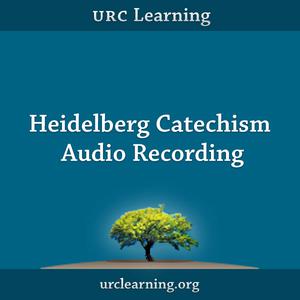 Heidelberg Catechism Audio Recording from URC Learning
Heidelberg Catechism Audio Recording from URC Learning
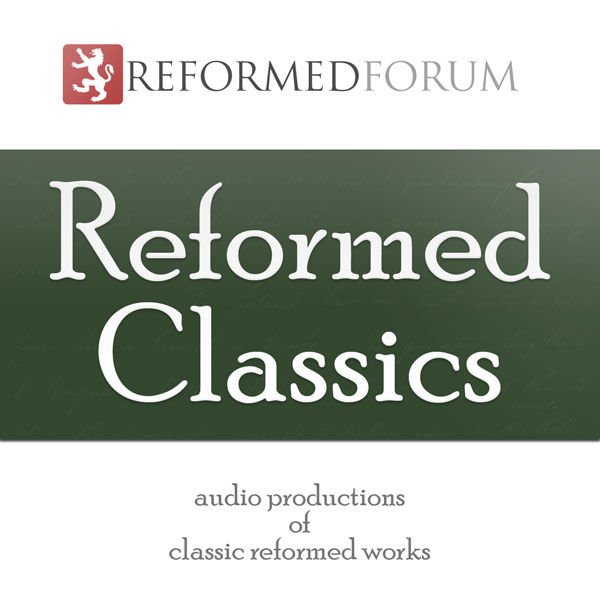 Reformed Classics
Reformed Classics
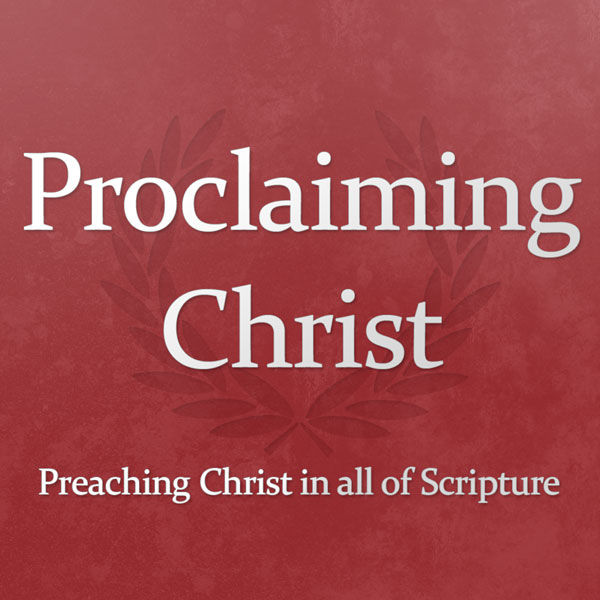 Proclaiming Christ
Proclaiming Christ